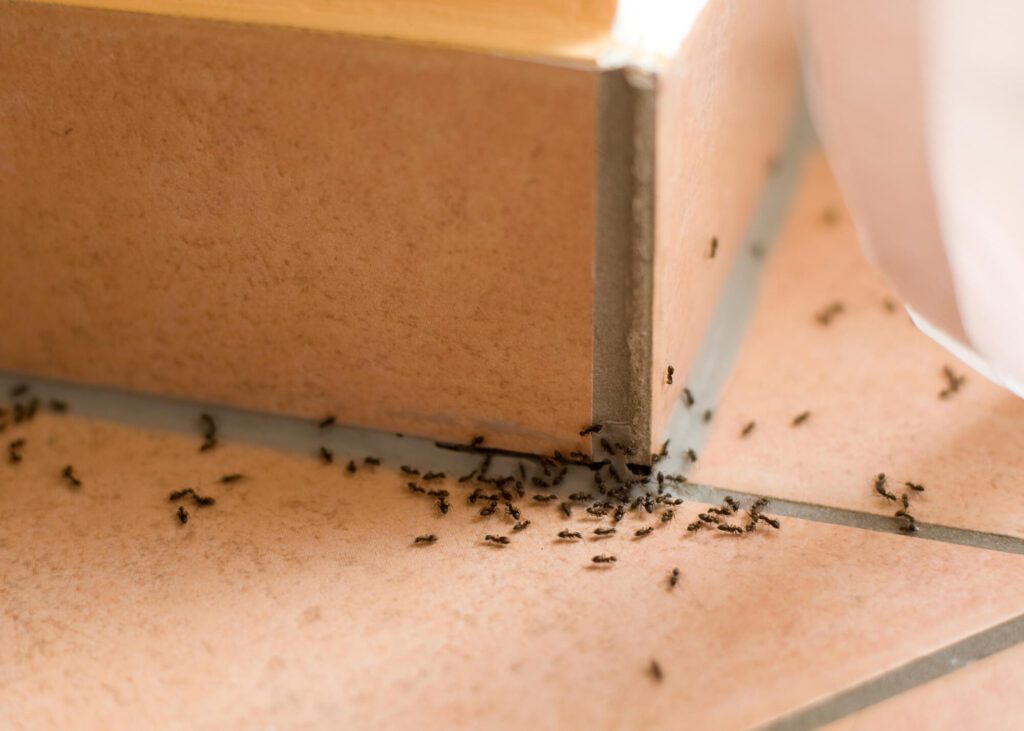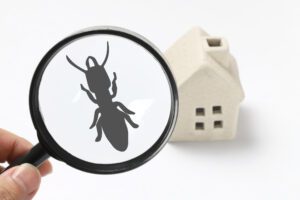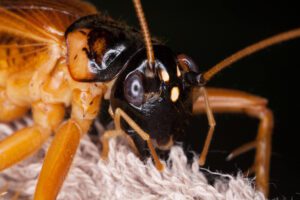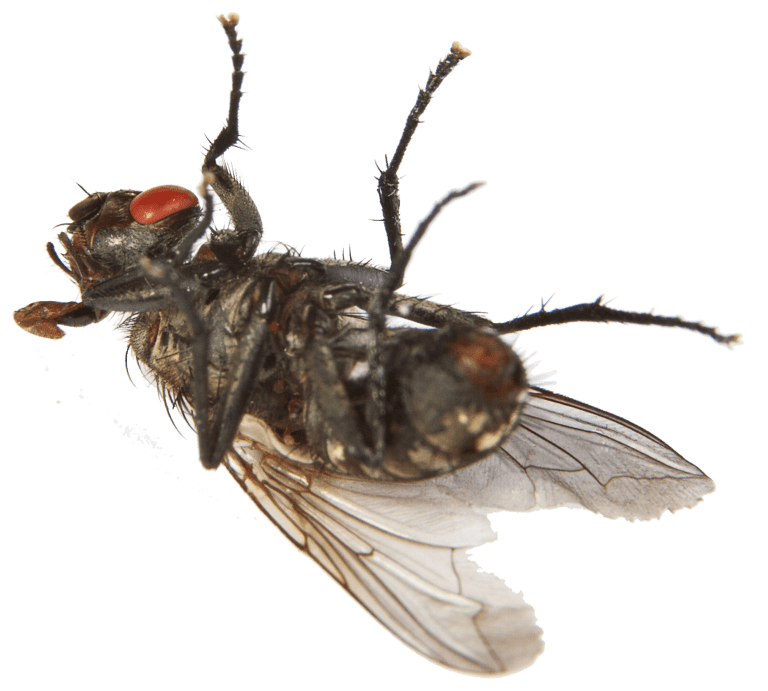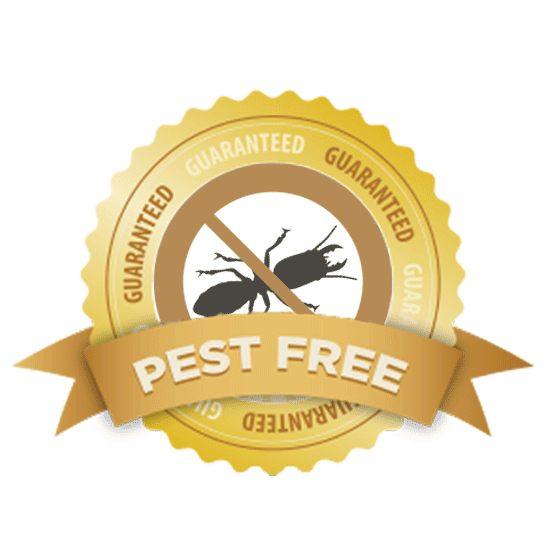There are over 12,000 different ant species in the world.
Out of the thousands of species, only around 25 of them are known to invade homes.
While ants are rarely involved in the transmission of diseases, their sheer numbers may be overwhelming to most homeowners because they like to inhabit moist living spaces, like kitchens and bathrooms. Often, the ants are attracted to food and become unwanted guests in homes.
There are just three groups of house ants among many that cause homeowners lots of problems. There are other different kinds of ants in certain areas that can be bothersome too.
The first step in dealing with ants is to identify them. Here, you’ll learn about the most common types of house ants, how to identify them, and how to get rid of them.
Most Common Types of House Ants
The most common ants at home include odorous ants, Argentine ants, pavement ants, and carpenter ants. It’s important to identify the particular ant type so you can know where they are coming from and what they’re eating.
Carpenter ants are your worst nightmare! They literally damage your house on the inside and outside by tunneling through damp wood.
Pavement ants are tiny, black, or brown ants that usually leave their outdoor nest and enter your home.
Argentine ants are also brown and small, but they normally live indoors near food items and moisture, such as pipes, sinks, and plants.
Odorous ants get their name from the rotten coconut stench they produce when squished.
If your ants don’t fit any of these descriptions, get in touch with your local pest control service for information about what is common in your neighborhood.
How to Identify House Ants
So, how can you know if you’ve got house ants? Well, the simplest way is to watch the ants moving around your house, especially in the kitchen looking for a bite.
And don’t take for granted that you can solve an ant problem by killing a few. More often than not, there are thousands upon thousands more ants in the colony close by.
Infestations of carpenter ants leave other telltale signs behind. While feeding, they make tiny holes in wood or even wood shavings you can see.
In many cases, a carpenter ant infestation is mistaken for a termite infestation and vice versa. If you spot signs of wood-eating creatures, contact an exterminator immediately.
Finally, sometimes people don’t realize they’ve got an ant issue until they get bitten. Some species such as fire ants cause severe pain and leave large red welts on the skin. However, other smaller ants like moisture ants leave just a little red bump.
If you spot unidentified pest bites on the skin, especially after waking up, contact a pest control professional.
How to Control House Ants
While it may seem daunting to get rid of ants and keep them away from your home, there are various ways to do it.
Keep Your Home Clean
Sanitation is vital for preventing and controlling any pest. As with all other living organisms, ants need food, water, and shelter to survive.
Ants leave the comfort of the home to look for food and water, so don’t make it that easy for them. Sweep all floors, keep foods sealed, and make sure all surfaces are clean.
Seal Off Openings and Cracks
Ants are tiny, of course, but it’s still wise to seal off cracks and crevices with steel wool or clear caulk, especially if you notice an obvious trail marching on nearby. Replacing worn out door sweeps and patching torn screens may also make a huge difference.
Remove All Possible Food Sources
Like humans, ants eat food and enjoy fats, proteins, and sweets. However, it’s not just human food you should keep an eye on.
Apart from quickly cleaning up spilled drinks and crumbs and sealing up food items in airtight containers, consider other popular food items for ants: oil spills, grease splatter in the kitchen, or even other creatures lying around–including dead ones.
Set Ant Baits
Using ant baits is the best way to control an ant infestation. Set the baits anywhere you spot ants and expect an army. If you still notice ants around your house, try other ant baits until you get one that’s attractive to this specific colony.
As well as finishing off any ants that enjoy the sugary, sweet bait syrup, when the scouts return to the colony with the liquid it’ll help kill larvae and control the population.
Get Rid of Rotten Wood and Damp Spots
While house ants generally have their main colony outdoors, they’ll sometimes create satellite colonies inside your home to access resources.
And they prefer damp areas, which means you should give areas such as windows, basement areas, and showers extra attention. Find leaks, fix them right away, and replace all water-damaged materials.
Avoid Using Sprays
Don’t apply a pest barrier spray around your home’s foundation to deter entry, however tempting that might be.
For one, the spray fades away and addresses just one possible entry point for ants. And not only are barrier sprays ineffective, they’re also an absolute overkill. Worse still, some sprays contain toxic chemicals that can alter your hormones.
Instead, if you see a few ants around, kill them the traditional way: with a firm stomp. After all, they could be scouts, so killing those early means they won’t bring others back.
If All Else Fails, Call in a Pro
Sometimes it’s necessary to call in the experts. They can trace the source of the problem and get rid of it, even if not at once. Bringing in a pro is also wise when it comes to dealing with carpenter ants as they can cause severe and possibly dangerous structural damage.
Wrapping Up
If you follow any of these ant control tips, there’s a healthy chance that you’ll be able to keep different types of house ants out of your property for good.
If everything else fails, make sure to call in the pest control experts at Command Pest Control in South Florida. Contact us today for a free inspection and quote.

